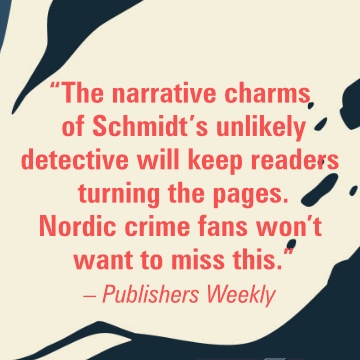
Translated by Howard Curtis — Is there any better means of returning from the dead than appearing in a murder mystery? I expect not, particularly if the murder mystery in question is of the locked room variety. Italian businessman and cookery writer Pellegrino Artusi (1820–1911) certainly seems to be enjoying himself when reimagined as an amateur detective in Marco Malvaldi’s Foul Deeds and Fine Dying.
It’s actually the second fictional outing for Artusi following The Art of Killing Well, and Artusi is still dining out on the success of his magnum opus, Science in the Kitchen and the Art of Eating Well. It is 1900 and the book is now in its fifth edition, which has brought Artusi to the attention of Italian notables, especially those involved in the food and hospitality industries.
One such luminary is canned food pioneer Secondo Gazzolo, who invites Artusi to spend the weekend at his Tuscan castle. While Gazzolo hopes that Artusi will be persuaded to endorse his new culinary enterprise, the real purpose of the gathering is to facilitate trade negotiations between Italian representatives of the Ottoman Public Debt Administration (OPDA) and a delegation from the Ottoman Empire.
There’s a lot of money at stake, and the atmosphere of the house party isn’t helped by the fact that those involved in the negotiations don’t particularly like or trust each other, including people who are supposed to be on the same side. Still, it comes as a major shock to almost all concerned when Everardo D’Ancona, chairman of the OPDA, is found dead, apparently suffocated, in his locked bedroom. The doctor suspects he has been murdered, but how?
Fortunately, Artusi is able to tear himself away from swapping recipes with fellow guests for long enough to investigate the matter. In so doing, he is once again ably, if rather reluctantly, aided by local policeman Ispettore Artistico.
Foul Deeds and Fine Dying is a historical murder mystery with a difference. Among the real people and events and seemingly carefully research historical detail, Malvaldi includes a number of anachronisms. These are delivered by the omniscient narrator, who frequently breaks the fourth wall to offer an aside or quip, including with reference to matters beyond the realm of possibility for people in 1900. Such moments can prove distracting.
However, the interlocutions from the narrator work much better when serving a period-appropriate comedic purpose. Here, the narrator (is it Malvaldi himself?) displays a dry and sarcastic wit, poking fun at the pretentions of those attending Gazzolo’s party. These moments, together with the extracts from Artusi’s diary interspersed throughout the text, render Foul Deeds and Fine Dying a very funny murder mystery.
It is also a locked-room mystery, which means that the central puzzle initially appears impossible to untangle. How can D’Ancona have been suffocated if no one was able to get into the room? Of course, Artusi gets there in the end, pointed in the right direction to some extent at least by the culinary information contained in his bestseller. Malvaldi provides an ingenious and satisfying explanation for the death, and the identity of the killer makes complete sense.
Artusi’s investigation of the locked room aspect of the story entails a thorough examination of Gazzolo’s castle and its Tuscan setting. The castle and its grounds are evoked in compelling detail as Artusi looks for ways the killer could have gained entry, and the atmosphere of the time and place is palpable. The history that Malvaldi provides regarding both the region and the association between Italy and the Ottoman Empire adds further realism to the story.
Yet, it is undeniably the food that most clearly conjures the atmosphere of the Italian countryside. Artusi is a gastronome and an amateur detective, and Malvaldi combines these two passions with great effect. It’s likely impossible to read Foul Deeds and Fine Dying without feeling hungry, as even the most initially unappetising of Artusi’s culinary discoveries are described in vivid and inviting detail.
For those who are particularly inspired by Artusi’s culinary genius and want to recreate the taste and aroma of the story, Malvaldi helpfully includes several recipes at the end of the book. The biscotto da servirsi con lo zabione sounds especially good.
Foul Deeds and Fine Dying is a clever and comedic novel. The murder mystery is complex and intriguing, and Artusi proves to be just as good a detective as he is a chef. It’s just as well, as the solution to the locked-room puzzle requires some innovative and inspired thinking.
If you fancy another criminally good Italian outing, try Maria Rosa Cutrufelli’s Tina, Mafia Soldier or David Hewson’s The Garden of Angels.
MacLehose Press
Print/Kindle
£13.20
CFL Rating: 4 Stars










